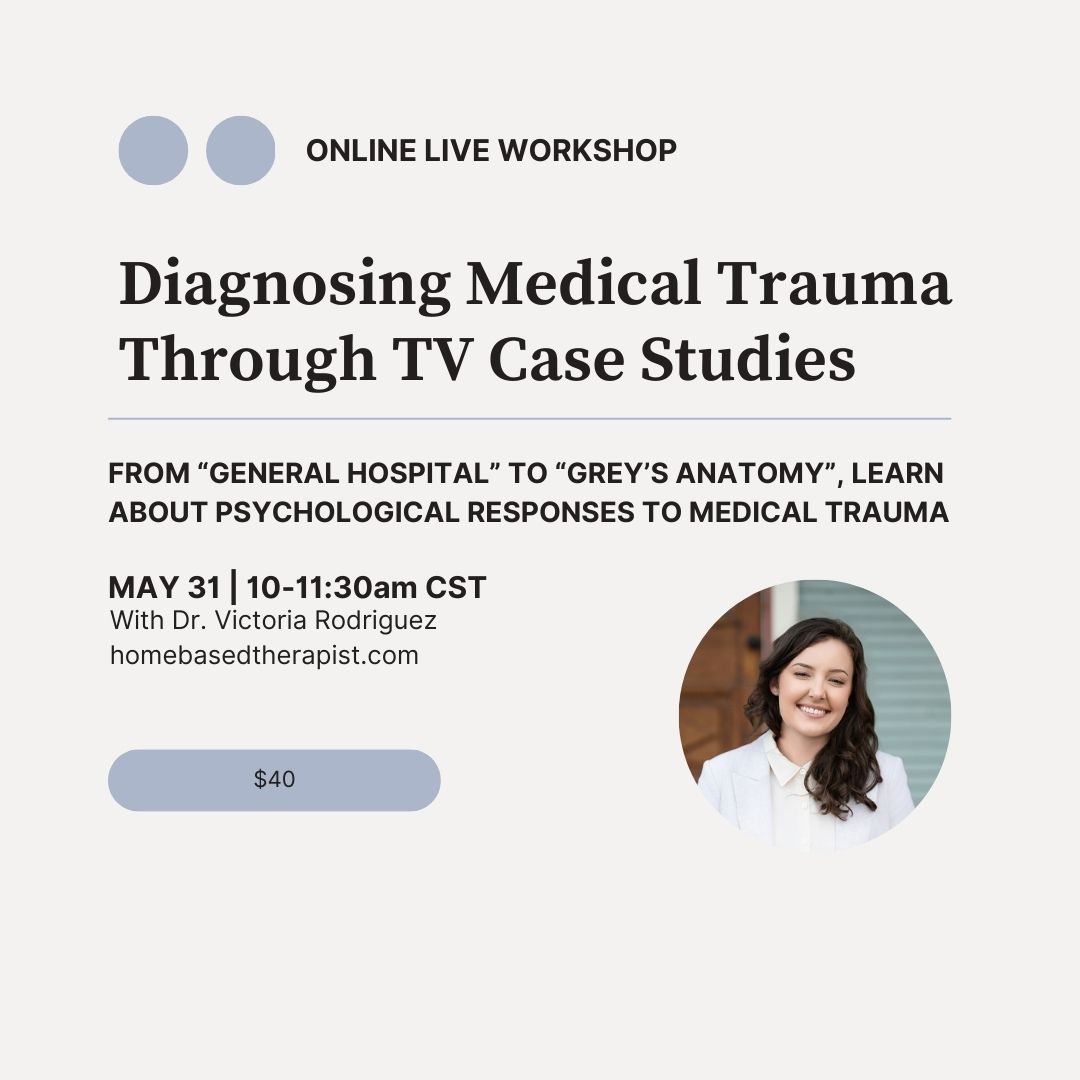 Image 1 of
Image 1 of


Diagnosing Medical Trauma Through TV Case Studies
Medical trauma doesn’t just happen in exam rooms—it’s reflected on our screens too.
Since the onset of television, audiences have been captivated by serialized medical workplace stories that dramatize the experiences of medical professionals and their patients.
Despite decades of laughing at “Scrubs” or crying during “St. Elsewhere”, the reality for many medical settings includes understaffed clinics, burnout, and vicarious medical trauma.
Therapists must be trauma-informed to understand best practices when addressing medical trauma when working with medical professionals, caretakers, and patients.
This interactive 1.5 hour presentation provides an introduction to medical trauma and reviews case study examples from our favorite medical dramas over the decades.
We’ll examine iconic medical TV scenes to explore real-world psychological responses to misdiagnosis, chronic illness, surgical trauma, and long-term hospitalization.
Medical trauma doesn’t just happen in exam rooms—it’s reflected on our screens too.
Since the onset of television, audiences have been captivated by serialized medical workplace stories that dramatize the experiences of medical professionals and their patients.
Despite decades of laughing at “Scrubs” or crying during “St. Elsewhere”, the reality for many medical settings includes understaffed clinics, burnout, and vicarious medical trauma.
Therapists must be trauma-informed to understand best practices when addressing medical trauma when working with medical professionals, caretakers, and patients.
This interactive 1.5 hour presentation provides an introduction to medical trauma and reviews case study examples from our favorite medical dramas over the decades.
We’ll examine iconic medical TV scenes to explore real-world psychological responses to misdiagnosis, chronic illness, surgical trauma, and long-term hospitalization.
Medical trauma doesn’t just happen in exam rooms—it’s reflected on our screens too.
Since the onset of television, audiences have been captivated by serialized medical workplace stories that dramatize the experiences of medical professionals and their patients.
Despite decades of laughing at “Scrubs” or crying during “St. Elsewhere”, the reality for many medical settings includes understaffed clinics, burnout, and vicarious medical trauma.
Therapists must be trauma-informed to understand best practices when addressing medical trauma when working with medical professionals, caretakers, and patients.
This interactive 1.5 hour presentation provides an introduction to medical trauma and reviews case study examples from our favorite medical dramas over the decades.
We’ll examine iconic medical TV scenes to explore real-world psychological responses to misdiagnosis, chronic illness, surgical trauma, and long-term hospitalization.